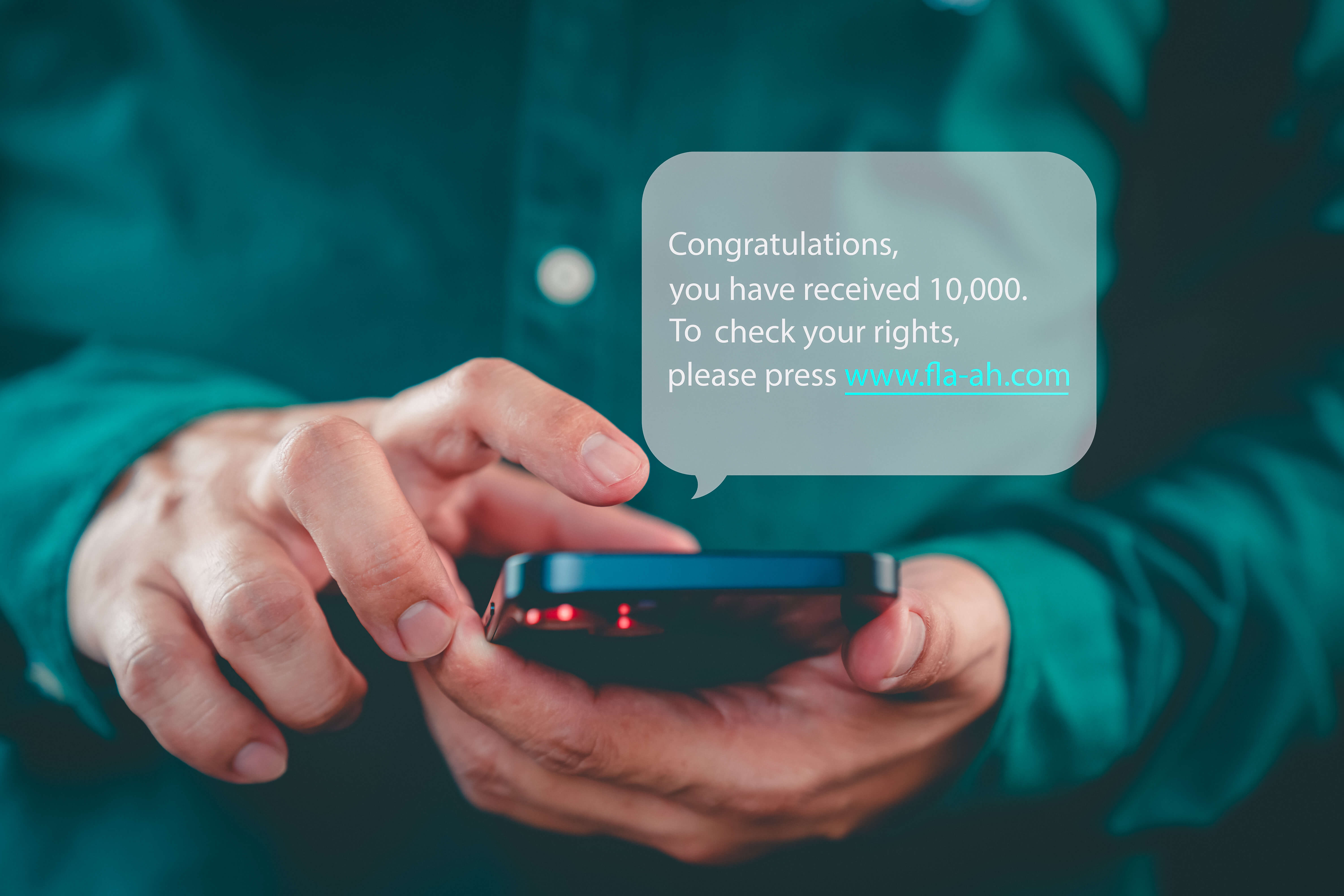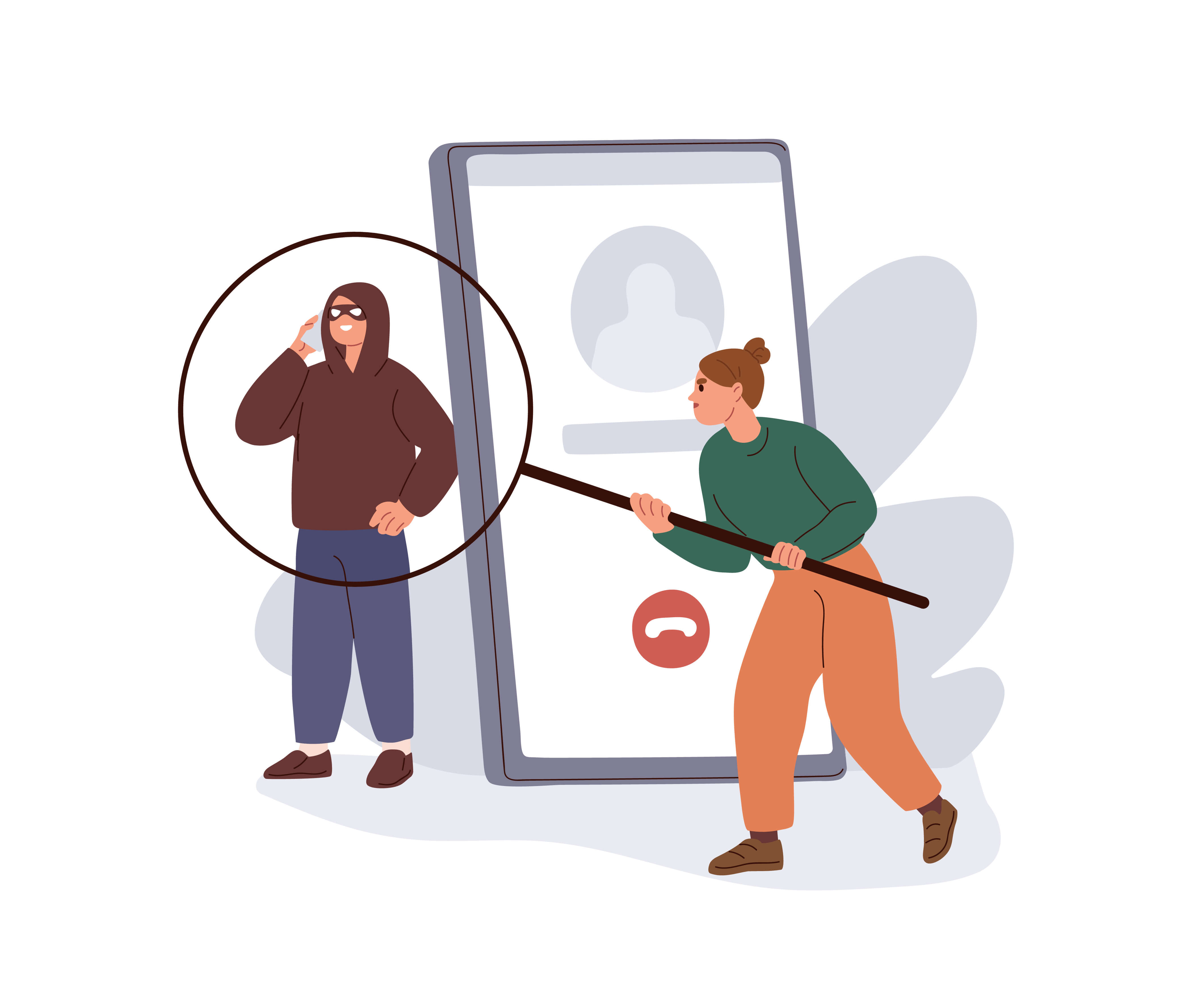Are you worried about being a victim of bank fraud?
Learn how to recognize the warning signs of fraud, understand the most common tactics used by fraudsters, and discover effective strategies to protect your finances.
We provide you with the necessary tools to keep your accounts secure and prevent fraud. Don't fall for the scam- take action today to safeguard your financial future!
Learn how to recognize the warning signs of fraud, understand the most common tactics used by fraudsters, and discover effective strategies to protect your finances.
We provide you with the necessary tools to keep your accounts secure and prevent fraud. Don't fall for the scam- take action today to safeguard your financial future!
Don't fall for the scam- start protecting your financial future today!
Don't fall for the scam- start protecting your financial future today!
-
Types of Fraud
-
ATH Móvil
-
Financial Exploitation
-
Identity Theft
Types of Fraud
5 Tips to Protect Yourself from ATH Móvil Scams and Keep Your Money Safe
In today's digital age, technology provides us with convenience and ease in our banking transactions. One of the most popular tools in Puerto Rico is the ATH Móvil app, which allows you to make payments and transfer money quickly and conveniently. However, we must remain vigilant against potential scams that could compromise our financial security.
Today, we'll share tips and recommendations to help you protect yourself from ATH móvil scams and ensure the safety of your funds.
1. Keep your personal information safe:
The first step to protecting yourself from ATH Móvil scams is safeguarding your personal information. Never share your personal identification number (PIN) or password with anyone, including family members or close friends. Remember, this sensitive information should remain private and known only to you.
2. Download the official app:
Download the ATH Móvil app only from trusted sources, such as your mobile device's official app store. Avoid downloading third-party apps or clicking on suspicious links that may redirect you to unsafe sites. Review online ratings and feedback before downloading.
3. Avoid making transactions on public Wi-Fi networks:
Public Wi-Fi networks can be insecure, as cybercriminals can intercept transmitted information. Avoid banking over public Wi-Fi networks and use your mobile data connection or a secure, reliable Wi-Fi network.
4. Keep your device secure:
Keep your mobile device up to date with the latest software and security updates. Use strong passwords to unlock your device and turn on the auto-lock option after a short period of inactivity.
5. Review your transactions regularly:
It's important to review your transactions on the ATH Móvil app regularly. If you identify any suspicious or unauthorized transactions, contact your financial institution immediately to report them. The sooner you detect and report any fraudulent activity, the faster they can take action to protect your account.
The ATH Móvil app offers a convenient way to bank, but we also need to be aware of the potential risks and scams associated with it. By following these tips, you can protect your finances and avoid falling for scams with ATH Móvil. Remember that safety is everyone's responsibility, and by being informed, we can stay one step ahead of scammers.
Don't fall for the scam, avoid fraud on the spot!
Learn how to identify financial exploitation of elderly individuals or people with disabilities
In many cases, people who are elderly or disabled are fraud victims of a family member or acquaintance. Also, they could be scammed by their caregivers or trusted people from whom they hire some type of service.
Be aware if you know an elderly or disabled person who exhibits the following behaviors:
-
Appears dazed, nervous, or afraid.
-
Does not remember certain financial transactions on their account, claims not to have authorized a transaction, or shows concern or confusion about their account balances.
-
Provides contradictory or questionable explanations to justify financial transactions.
-
Fears eviction or institutionalization if they do not give money to the person responsible for their care.
-
Their physical appearance suggests they are not receiving adequate care, according to their needs and financial condition
-
Changes their withdrawal patterns or amounts.
-
Frequently, their accounts change from one branch to another
-
Goes to the bank with a person who:
-
Does not allow them to speak directly with bank staff
-
Whether a family member or a stranger, prompts or coerces the elderly person to make a withdrawal, money transfer, loan, or other financial transactions.
-
Whether a family member or a stranger, appears to be overly interested in the elderly person's financial status.
Be aware if you notice that a family member or acquaintance of an elderly person or a person with disabilities has the following behaviors:
-
Persistently seeks guidance on financial benefits for the elderly or disabled person, without the elderly's or disabled person's consent.
-
The person provides contradictory or questionable explanations to justify financial transactions
-
The person is one of several individuals or family members who claim to have guardianship or the entitlement to manage the elderly’s or disabled person’s accounts and assets. Likewise, they refuse to show evidence of their authority or present contradictory evidence.
-
Impersonates the elderly person or person with an impairment to receive information or services over the phone.
-
Forges the signature of the elderly or disabled person.
We all have a responsibility to protect the victims or potential victims of this crime. If you suspect or know of a situation of financial exploitation, you may call the following telephone numbers
Department of the Family
Family and Children Administration
Social Emergency Line
1-800-981-8333
787-749-1333
Family Guidance and Support Line
787-977-8022 (metro area)
1-888-359-7777 (island)
Office of the Ombudsman for the Elderly of the Commonwealth of Puerto Rico
Protect yourself against identity theft
Identity theft is a growing threat that can have serious consequences for your financial and personal security. This crime occurs when someone uses deception to obtain your personal information, such as your name, social security number, or credit or debit card information, to steal your identity and commit fraud or other crimes.
Learn how criminals operate and protect yourself against identity theft.
How do criminals operate?
-
They pretend to be a service provider, financial institution, family, or friend
-
They may contact you while pretending to be someone you trust, asking for money transfers or information about your bank accounts.
-
They may use methods such as phishing, vishing, smishing, or mail theft to obtain your information.
Consequences of identity theft
-
Financial losses from unauthorized transactions.
-
Deterioration of your credit history due to accounts and debts that you do not recognize
-
Stress and time spent resolving legal or financial issues.
How to protect yourself from identity theft
-
Regularly review your statements for any suspicious activity.
-
You can request your credit report for free once a year. Visit Annual Credit Report.com - Home Page or call 1-877-322-8228 to request it.
-
Shred documents that contain sensitive or personal information
-
Don't share sensitive data such as your Social Security number or banking information through suspicious emails, text messages, or unsolicited calls.
-
Always verify the identity of the person requesting money transfers, especially if they use emergency tactics.
-
Make sure your passwords are strong and change them regularly.
What to do if you are a victim?
-
Contact your bank immediately to report any suspicious transactions, block your account, and protect your funds.
-
Place a fraud alert on your credit report to prevent new accounts from being opened in your name. Contact one of the Credit Bureaus to request the alert:
-
TransUnion al 1-800-680-7289 or through the web TransUnion Online Service Center | Online Freeze, Dispute, Fraud Alert, Credit Report, and Score
-
Equifax al 1-800-525-6285 or through the web Place a Fraud Alert or Active Duty Alert | Equifax®
-
Experian at 1-888-397-3742 or through the Fraud Alert Center at Experian
-
Report the incident to local authorities and the Federal Trade Commission (FTC) by calling 1-877-438-4338 or
1-866-653-4261 (TTY).
Protecting your identity is essential in an increasingly digital world. Stay vigilant and take proactive steps to ensure your safety.
Recent Articles
Did you detect anything suspicious?
FirstLine Solutions Center
Report any suspicious activity to one of our representatives by calling:
Fraud Alerts
We automatically alert you when suspicious transactions are detected on your Visa or Mastercard debit card.
Chip Technology
Our Visa or Mastercard debit and credit cards feature microchip technology that reduces credit card fraud.
Report the fraud
HOW TO REPORT IT?
reporting fraud is essential to protect your money and help prevent future crimes. Acting quickly can prevent financial losses and improve security for everyone. Don't hesitate to report any suspicious activity!
Frequently asked questions
Phone scams come in many forms, but in all of them, scammers often intimidate their victims with urgency to act, requesting personal and confidential information.
If you receive a call in which the caller identifies themselves as an employee of a telephone company, a utility company, ATH Móvil or FirstBank and asks for your user information, passwords, card numbers, or personal information such as your deposit account number, do not fall for the scam, FirstBank will never call you to request this type of confidential information.
If you share your personal or sensitive information, you may be a victim of account takeover by scammers
Email or text message scams come in many forms, but in all of them, scammers often impersonate a company or financial institution to encourage you to click on the link in their messages and request personal and confidential information. Once you enter it, they get what they need to commit fraud.
If you receive an email or text message asking for your sensitive or financial information, don't fall for the scam, FirstBank will never request this type of confidential information.
If you share your personal or sensitive information, you may be a victim of account takeover by scammers.
In romance scams, scammers create fake profiles to deceive people seeking an emotional connection with the ultimate goal of stealing money from them. These relationships are usually virtual and often involve affectionate language and promises about the future to persuade their victims.
Scammers always come up with excuses as to why they can't meet in person or via video call. Over time, they ask for money for emergencies, health issues, or any other problem. In some cases, they may also encourage victims to invest in fraudulent schemes. Once they have obtained the money, they disappear without a trace.
If you are in an emotional relationship with someone you have never met in person, and they ask you to send money via wire transfer, buy gift cards (which you must mail or send the numbers for), or provide your bank details, do not fall for the scam. You will lose your money.
Account takeover occurs when fraudsters obtain the necessary information to commit fraud on existing accounts.
Once you provide them with your personal or confidential information, scammers may:
-
Create digital banking profiles to control your accounts.
-
Create ATH Móvil profiles to initiate transfers from your accounts
-
Hacer pagos por ACH con la información de tus cuentas
-
Make ACH payments with your account information
-
Create fraudulent checks and negotiate them against your accounts
-
Make card-not-present transactions with your debit or credit card
The type of appropriation they manage to make will depend on how much personal information you share with them.
-
All our Customer Service Center immediately at 787.725.2511 and report it to one of our representatives.
-
Change the passwords of your digital banking, ATH Móvil, personal email, and social media accounts.
-
If you provided your deposit account information, such as your account number, visit your preferred branch and request the cancellation of your deposit account. Once scammers obtain your account number, they can carry out various types of fraud.
-
If you provide your debit or credit card information, request cancellation immediately. We will send you a new one to replace the compromised one.
-
If you provided personal information, including your Social Security number, contact the credit bureaus and request a fraud alert to mitigate potential risks.
TransUnion: phone number 1-833-395-6938 or through Consumer Support | TransUnion
Equifax: phone number 888-EQUIFAX or via Equifax | Contact Us | Customer Service
Experian: phone number 1-888-397-3742 or via www.experian.com
Card cloning is a fraud scheme in which the magnetic stripe information on a card is cloned (copied) at point-of-sales (POS) terminals or ATM terminals.
Always check the terminals before inserting or swiping your card to make sure there are no foreign objects overlapping or inserted into the card reader.
As a preventative measure, you should also check your accounts frequently to verify that all debited transactions are legitimate and were initiated by you.
1. Call our Customer Service Center immediately at 787.725.2511 and report it to one of our representatives.
a. You must formalize your claim with FirstBank, and you will receive a case number that you can use for follow-up.
2. If you provided your debit card information, request cancellation immediately. We will send you a new one to replace the compromised one.
1. Call our Customer Service Center immediately at 787.725.2511 and report it to one of our representatives.
a. You must formalize your claim with FirstBank, and you will receive a case number that you can use for follow-up.
b To process the claim, you must send us an affidavit in English detailing all the details of your claim
1. Call our Risk Center immediately at 1-855-701-2265 and report it to one of our analysts.
a. Alternatively, you may write to us at the following address: FirstBank PO Box 84025 Columbus, GA 31908-4031
2. If you provided your credit card information, request cancellation immediately. We will send you a new one to replace the compromised one.









